チェーホフおすすめ作品10選~チェーホフは小説も面白い!戯曲だけにとどまらない魅力をご紹介!
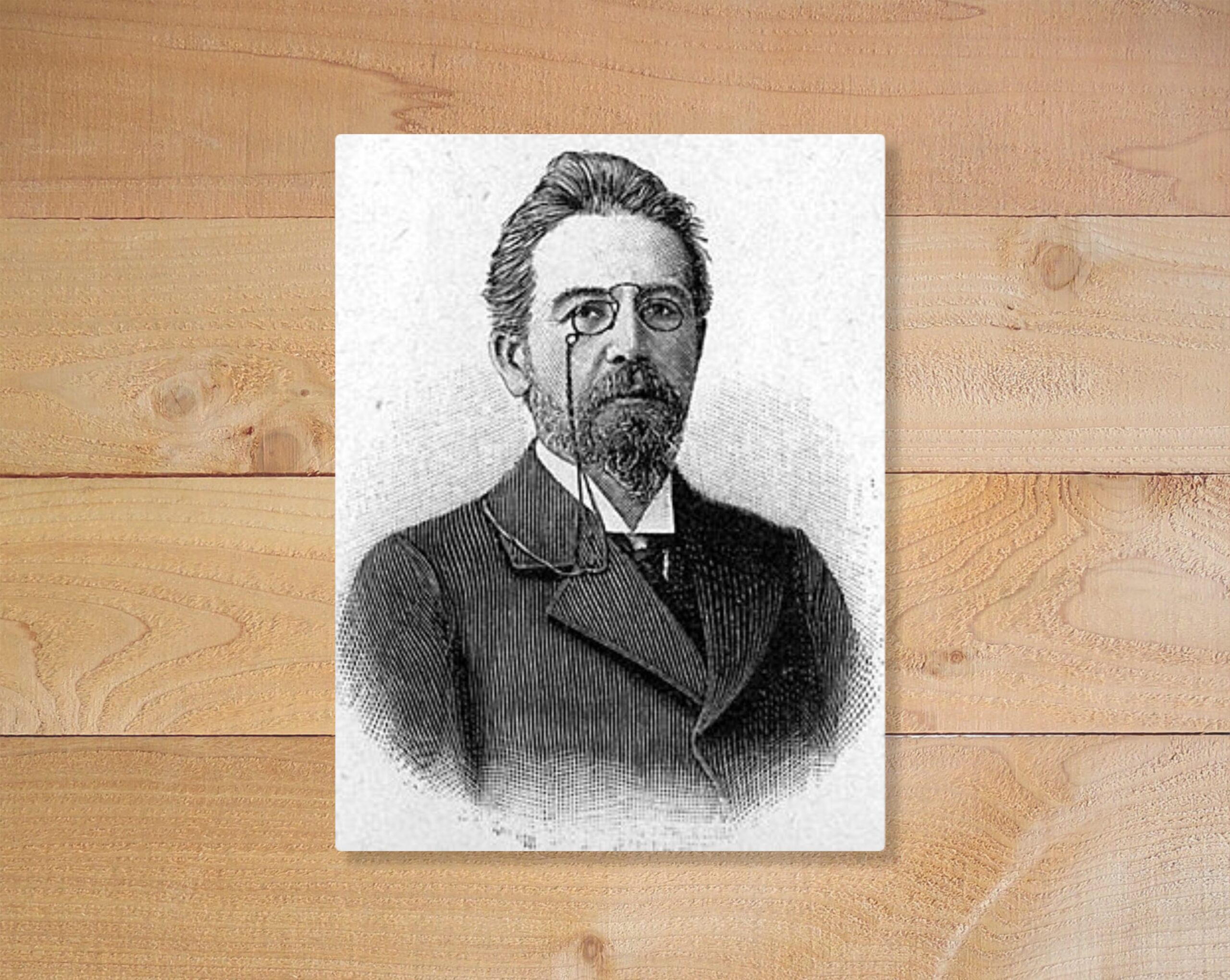
チェーホフおすすめ作品10選
私はこのブログで「親鸞とドストエフスキー」というテーマでドストエフスキーについて更新を続けています。
そしてその学びの過程でロシアを代表する作家チェーホフと出会うことになりました。
ドストエフスキーは人間の奥底のどろどろした混沌を凝視します。どこまでも登場人物の心の奥底に彼は入り込みます。彼のすごいところはそれを読者の私たちにも体験させてしまうところにあります。そしてそれを可能にするのが黒魔術的なあの独特な語り口なのです。
ドストエフスキーは社会とのかかわりにおける人間というよりも、人間一人一人に潜む人間の根源に迫っていきました。
それに対しチェーホフは社会の中に生きる人間の心を見つめました。ある環境における人間同士のかかわりの中で一人一人の心を覗いていきます。単なる個の問題というより集団における人間の個が問題にされています。
チェーホフは恐るべき大人物です。こんなすごい作家が日本でほとんど知られていないのはあまりにもったいなさすぎます。
彼の作品はただ単に面白いというだけでなく、私たちの「ものの見方」や「価値観」を揺さぶります。
ドストエフスキーも読者を混沌に叩き込み、私たちの世界観をひっくり返すような圧倒的な力があります。
強烈な個性で突き進んでいくドストエフスキーは良くも悪くも狂気の作家です。
しかし、チェーホフはドストエフスキーと違ってもっと冷静に、そして優しいまなざしで訴えかけてきます。
私たちを包み込んでくれるような穏やかさがチェーホフにあります。こうしたクールで優しい穏やかさがチェーホフの大きな特徴です。
今回の記事ではそんなチェーホフの魅力が詰まったおすすめの10作品を紹介していきます。
それぞれの記事でより詳しくお話ししていきますので、ぜひリンク先もご参照ください。
では、早速始めていきましょう。
チェーホフとは

チェーホフ(1860-1904)Wikipediaより
まず、作品の紹介に入る前にチェーホフを読む上で重要な点をひとつご紹介します。
チェーホフは1860年、南ロシアのタガンローグという港町で生まれました。
チェーホフの家系は元々農奴でした。チェーホフの父は商店を経営していましたが農奴上がりの商人であるということはチェーホフにおいても大きな意味を持つものになりました。
ここにドストエフスキーやトルストイ、ツルゲーネフという貴族出身の作家との大きな違いがあります。
そしてチェーホフを知る上で非常に重要な点は、彼が医者であったということです。彼は作家として世界中に名を知られていますが医者兼作家、あるいは作家兼医者という立場でずっと作品を書き続けていたのです。
特に彼の医学部生時代や作家になってからしばらくは、経済面を支えるためになんとか文章を書き上げて生活費の足しにしていたというほどでした。チェーホフは作家としてデビューした後も医者としての自分を決して捨てたりはしなかったのです。
医者は世界を科学的に見ていきます。その冷静な視点がチェーホフ文学の特徴にもなっていくのです。
農奴出身の家系で医者兼作家。
これがチェーホフを知る上で非常に重要な点です。
チェーホフの生涯については以下の記事でより詳しくお話ししていますので興味のある方はこちらをご覧ください。
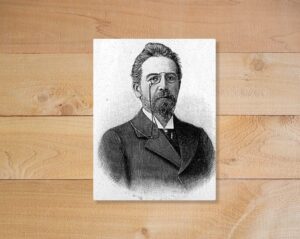
では、これよりチェーホフのおすすめ作品を紹介していきます。
『六号病棟』(1892年)
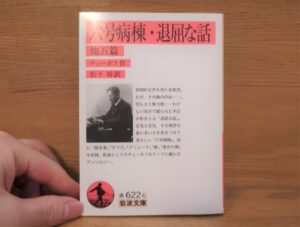
この作品はチェーホフ作品中屈指、いや最もえげつないストーリーと言うことができるかもしれません。
院長がいつの間にか精神病者にさせられて病院を首になり、あまつさえ精神病棟に放り込まれそこで死を迎えるというあらすじを読むだけでもその片鱗が見えると思いますが、作品を読めばその恐ろしさがもっとわかります。その辺のホラー映画を観るより恐いかもしれません。
ただ、この恐さと言うのが「ホラー映画的な恐怖」ではなく、人間の本性、そして自分自身の虚飾を突き付けられるような怖さです。
この作品を読むと「え?じゃあ自分って何なんだ?この院長や精神病者と何が違うんだ?正気と狂気の違いって何だ?ずるく生きる人間に利用されるしか私の道はないのか?……暴力の前ではすべては無意味なのか?」などなど様々な疑問が浮かんでくることでしょう。
この作品はチェーホフどころか、最近読んだ本の中でも特に強烈な印象を私に与えたのでした。これはもっともっと日本で広がってほしい作品だと私は思います。
チェーホフ小説の極み!『六号病棟』あらすじ解説―あまりに恐ろしく、あまりに衝撃的な作品
Amazon商品ページはこちら↓
『退屈な話』(1889年)

この作品のタイトルは『退屈な話』ですが、読んでみると退屈どころではありません。とてつもない作品です。
地位や名誉を手に入れた老教授の悲しい老境が淡々と手記の形で綴られていきます。
どんなに光り輝く栄誉や名声、地位があろうと、死を目の前にすればそれらは虚しく散り去る。
今まで自分を支えてきたと思っていたものがすべて意味を失ってしまい、自分が死を待つ丸裸の人間のように思えるようになってくる。
それが自分だけのことならまだいい。しかし問題なのは周りのものすべてが俗悪に見えてくるということ。
愛していたはずの妻や娘ですらそう見えてしまう。かつてはあんなに愛していたはずなのに、今やこんなに惨めな女になってしまった。もはや見る影もない・・・(これは何も見た目の問題ということではありません。あくまで精神的なものです)
そんな老教授にチェーホフは最後の最後まで人生とは何かの答えをあげません。
チェーホフはこの小説で「問題解決」ではなく、「問題提起」をしようとしました。チェーホフ自身がまだその解決を見出せていなかったのもありますが、その解決はあくまで読者自身で考えてほしいとチェーホフは考えたのです。
あのトルストイもこの作品の持つ力に驚嘆しています。
それほどこの作品の持つパワーは計り知れないということが言えるのではないでしょうか。
チェーホフ中期の傑作『退屈な話』、こちらも非常におすすめです。
チェーホフ『退屈な話』あらすじ解説―トルストイも絶賛した名作短編
Amazon商品ページはこちら↓
『黒衣の僧』(1894年)

精神を病み、そこから自分が作り出した幻覚と話をする。
これは『カラマーゾフの兄弟』の主要登場人物、イワンを彷彿とさせます。彼も精神を病み、自分の作り出した悪魔と対話します。彼もそれが幻覚だと知りながらも悪魔と対話するのです。
そしてこの作品で興味深いのはやはり「天才と狂気は紙一重なのではないか」という問題です。
天才とは何なのか。逆に言えば狂気とは何なのか。人と違ったことを考えたり、人と違うものが見えることが狂気であるならば、天才とはもれなく治療の必要な狂人となってしまうではないか。
そして巷でもてはやされる天才が結局そうではない以上、凡人が天才として祭り上げられているに過ぎないのではないか。そんな世の中などうんざりだと主人公のコーヴリンは語るのです。
この作品もまた私たちをドキッとさせます。チェーホフは問題提起が尋常でなく巧みです。普段私たちがなんとなく見過ごしてしまうものを的確につかみ、私たちが最も驚く形でそれを提示します。この作品もものすごく面白いです。一気に読んでしまいました。
Amazon商品ページはこちら↓
『決闘』(1891年)

この記事内でより詳しくお話ししていきますが、ロシア文学の伝統とも言える「余計者」たちは人生に飽き、生きることに投げやりな存在でした。
しかしチェーホフはこの作品においてそんな余計者の末裔ラエーフスキーに試練を与えます。
それが恋人とのうまくいかない関係や経済破綻、自己を守るための終わりない嘘の連続、恋人の不貞、そして最後が決闘という命の危機でした。
ラエーフスキーはこの危機を経てそれまでの人生とは違った道を歩むことになります。
それまでの「余計者」の先人たちは皆無為に、そして悲劇的な結末を迎えていました。しかしチェーホフはラエーフスキーに違った道を歩ませることになります。彼は苦しみながらも、生きる道を見出したのです。いや、見出そうともがき続けることになります。
ロシア文学の「余計者」の伝統を考えるならばこの作品はかなり画期的な作品であるように私は思えます。
チェーホフは人生の意味は何かを問い続けた作家です。その彼にとって「人生は意味のない虚しいものだ、どうせ自分にはどうしようもない」と投げやりになっている余計者たちの思想をどう乗り越えていくのかというテーマは非常に重要なものであったように思われます。
この作品はロシア文学の歴史を知る上でもとても役に立つ作品です。余計者とは何かが非常にわかりやすく描かれています。そして彼がどのように新たな道を見つけたかというのも非常に興味深かったです。
チェーホフ『決闘』あらすじ解説―ロシア文学の伝統「余計者」の系譜に決着を着けた傑作
Amazon商品ページはこちら↓
『箱にはいった男』(1898年)
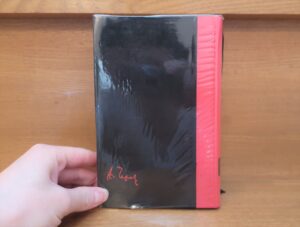
『箱にはいった男』は1898年に発表された作品です。この作品はチェーホフの短編三部作の一作目にあたり、この作品の後に『すぐり』、『恋について』が続きます。
タイトルにある「箱に入った男」とはこの物語で語られるある男のことを指しています。
その男は名をベーリコフといい、学校の教師をしていました。
しかし彼はその小心さ故自分で何かを決めることができず、お上、つまり権力者のお墨付きがなければ生きていけない人間だったのです。
お上による禁止というのは従う側にとっては何も考える必要がありません。ただそれを破った人間が悪。単純明快です。
しかしこれが許可とか認可になると、どこまでがよくて何をしたらだめかはある程度自分で考えなければなりません。彼は自分で考えることをとにかく恐れるのです。
ベーリコフはとにかく規則に厳格で、違反者を告発、密告しました。この男の存在で街の様子がすっかり変わってしまいました。何をするにもびくびくしていなければならない。あげくの果てにお互いに人助けすらできないほどになってしまったのでした。
制度という箱。お上から決められたものこそ箱であり、それに盲目的に従わなければ彼は不安でたまらないのです。箱から出て自分でものごとを考えるのが怖いのです。箱の中にさえいれば自分は守られている。彼はそう信じているのです。
やがてある出来事を経てベーリコフは精神的に病み、そこから体調も崩しあっけなく亡くなってしまいます。
チェーホフの鋭いところはベーリコフのような「箱にはいった男」はたしかに周りを不幸にするが、自分だって多かれ少なかれ箱的な要素があるではないかと自分自身をも批判するところにあります。
「ベーリコフみたいなやつは最悪だ」で終わらせるのではなく、「じゃあ翻って自分はどうなんだい?彼と何が違うんだい?周りの人のために君は何をしているんだい?」と問いかけるのです。
これは読んでいて「うっ・・・」と突き刺さるものがありました。チェーホフの人間洞察は本当に鋭いです。
頭ごなしにがんがん説教されるという感じではないのですが、話を聞いている内に「あぁ・・・」と自分の至らなさに打ちひしがれるような、そんな感覚になります。
20ページほどという短い作品の中でこれほどのものを表現できるとはやはり恐るべしチェーホフです。
チェーホフ『箱にはいった男』あらすじ解説―精神の自由を放棄した奴隷人間の末路
Amazon商品ページはこちら↓
チェーホフ全集〈11〉小説(1897-1903),戯曲1 (1976年)
『すぐり』(1898年)

たった15ページにも満たない短い作品ではありますが、チェーホフの人生観、幸福論が凝縮された傑作です。チェーホフ研究者の佐藤清郎氏もこの作品を、
『すぐり』はすばらしい、そしてある意味でおそろしい作品である。小品といってもいい短い形式の中に盛りこまれた内容は一個の長篇小説に匹敵する。
塙書房、佐藤清郎『チェーホフの文学』P104
と絶賛しています。「幸せとは何か」とものすごく考えさせられる作品です。
この作品については長くなってしまうのでここではあまり紹介できませんが、記事内でより詳しくお話ししていますのでぜひご覧ください。
チェーホフ『すぐり』あらすじ解説―幸福とは何か。幸せは誰かの犠牲がなければ成り立たない?
Amazon商品ページはこちら↓
チェーホフ全集〈11〉小説(1897-1903),戯曲1 (1976年)
『ロスチャイルドのバイオリン』(1894年)

この作品も10頁少々という短い作品ですが、これまた内容が凝縮されていてあっという間に引き込まれてしまいます。
そして何より、長年ずっと黙って尽くしてくれた優しい妻に対するヤーコフの後悔。これが何よりもいたましいです・・・
そして彼が自らの生き方を真に振り返ったのが、墓場からの帰り道に妻との思い出の場所に偶然やってきた時だというのですから何ともドラマチックです。
読んでいて泣きそうになるくらい切ないシーンです。
割と淡々とした作品をたくさん書いてきたというイメージがあるチェーホフですが、こうした感動的な作品も書くのだなと驚きました。
これは名作です。映像化したら最高に感動的な作品になると思います。
チェーホフ『ロスチャイルドのバイオリン』あらすじ解説―人生を無駄にしてしまった男の悲哀と目覚めの感動作
Amazon商品ページはこちら↓
『ともしび』(1888年)

舞台は鉄道建設の現場という資本主義建設の最先端の場です。そこで技師のアナーニエフと学生のシテンベルクと出会った「私」が彼らの問答を通して人生を考えるという筋書きです。
この作品はショーペンハウアー思想に興味がある人には画期的な作品です。
と言うのも、チェーホフ流のショーペンハウアー的ペシミズムとの対決というのがこの作品の主題となっているからです。チェーホフ研究者の佐藤清郎氏は次のように述べます。
これまで才気で書きつづけてきたチェーホフは、この作で初めて時代の問題、ぺシミズムと真剣に取り組んだのである。ペシミズムを論ずることで、何のために人間は生きるのかという窮極的な問題に、彼はじかにぶつかったのである。どっちみち死ぬる存在が何のために生きるのか。バビロンの塔も、ついには滅びる運命にあったではないか。死の前に何がいったい価値があるのか。『ともしび』はこの設問に答えようとした作品なのだ。
筑摩書房、佐藤清郎、『チェーホフ芸術の世界』P132
チェーホフがショーペンハウアーを読み、そこからどう問題意識を持ってその思想と戦うようになっていったかというのは非常に興味深い問題であると思います。
そうした意味でもこの『ともしび』という作品はチェーホフを知る上で非常に重要な作品となっています。
物語としてもチェーホフらしい簡潔で読みやすいものとなっていますのですいすい読むことができます。ページ数も50ページほどとコンパクトなので気軽に読めるのも嬉しいです。
とてもおすすめな作品です。
チェーホフ『ともしび』あらすじ解説―ショーペンハウアー的ペシミズムとの対決
Amazon商品ページはこちら↓
『僧正』(1901年)

徳高く、名誉ある高位聖職者である僧正ピョートルはミサの最中、丸9年も会っていなかった母の姿を見たような気がします。これがすべてのきっかけでした。
翌日、彼は母親と再会することになります。彼は幼い日の幸福な思い出と母への思いを抑えきれません。しかし母の態度は彼が求めていたものとはまったくちがったものでした。
母は最後まで「僧正様」としてのピョートルに対する恭しい態度を崩さなかったのです。かつてのように「パヴルーシャ(ピョートルの愛称)」と接してほしかったピョートルとしてはそれはショックな態度でした。
ピョートルからすれば、僧正となった今も昔と同じく愛する母の息子でした。しかし「僧正」という肩書、「仮装」がピョートルという人間そのものを覆ってしまっているのでした。母はその「仮装」を通してしか今は見てくれない。そのことにピョートルは深い悲しみを抱くのでした。
やがてピョートルはチフスにかかってしまい、みるみるうちに病状は悪化します。
死に瀕し、げっそりとやつれたピョートル。その姿はもはや「高貴な僧正」ではなく、ひとりの死に瀕した人間でした。ですが、だからこそ「僧正」という仮装が取れた姿を見た母は、愛する息子パヴルーシャをそこに見出すことができたのです。
ピョートル自身も最後の最後に「ありのままの自分」としていられたことに満足して命を終えていきます。
地位もあり、徳の高い僧正ではありましたが、そうであるがゆえに抱えていた苦しみが彼にはあった。彼は幼い時の自由で幸福な思い出と母の愛を胸にして亡くなっていったのです。
子の母への思いと、母の子への思い。
この物語は20ページほどの短い物語ではありますが思わずじーんとくるものがあります。母が最期に息子に呼びかけるシーンは何度読んでも泣きそうになります。
この作品が書かれたのはチェーホフの晩年です。
チェーホフ自身も結核でこれ以上あまり長く生きられないことを覚悟していたと思います。そういう時期にこの作品が書かれたというのもチェーホフを知る上で非常に意味があることなのではないかと私は感じました。
この作品もおすすめです。チェーホフ作品の中でも随一の感動作です
チェーホフ『僧正』あらすじ解説―幼い頃の幸福な思い出~僧正と母の再会・死別を描いた感動作
Amazon商品ページはこちら↓
チェーホフ全集〈11〉小説(1897-1903),戯曲1 (1976年)
『かもめ』(1896年)
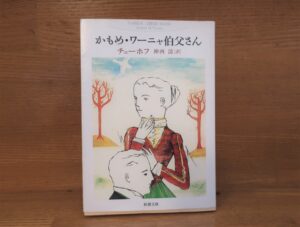
『かもめ』はチェーホフの代表作です。
代表作ということはそれはそれは面白いはず。
私はそう思い読んでみたのでありますが、どうもおかしいのです。
どうしてもその面白さがわからないのです・・・
参考書も読んで、それから何度も読んでみたのですがやはり、「面白い!」とはなりませんでした。
もちろん、「つまらない」わけではありません。ですが、チェーホフの他の小説と比べてみると特に思うのですがその面白さがわかりにくいのです。(チェーホフの小説が面白過ぎるせいもあり、比べてしまうとどうしても物足りなくなるというのもあります)
なぜそうなってしまうのでしょうか。
私は色々考えてみたのですが、これはおそらくこの作品は「劇」として観るべきものであって、小説として読むべきものではないのではないかと感じました。
チェーホフ劇には波乱万丈なストーリーがありません。あくまで家庭内のすれ違いを主とした地味なストーリーです。そういう家庭的な繊細な物語がチェーホフ劇の真骨頂です。
本では登場人物の微妙なしぐさや声色、間を感知しきれません(何しろ、全ての動きを書き切ることはできないのだから)。舞台で演者が実際に演じるからこそ観客はそのリアルさに心が打たれるわけです。
『かもめ』は小説ではありません。劇です。もし小説として書くならもっと小説として読めるようにチェーホフは書いたはずです。しかしこの本ではあくまで劇の『かもめ』を文字化したものです。
そこに本を読んでもいまいち入り込めない難しさがあるのではないかと私は思ったのです。この辺の事情については上の記事でより詳しくお話ししていますのでぜひご覧ください。
おすすめ10選には入れましたが、これは本ではなくぜひ劇として皆さんに観てほしいという私の願いです。かく言う私もまだ観たことがないのですが、機会があればぜひこの作品のすごさを生で感じてみたいなと思っています。
他のチェーホフ四大劇についても同じです。以下の記事でそれらの作品についてもお話ししていますのでぜひそちらもご覧ください。個人的には四大劇の中では『桜の園』が一番好きです。日本人的な感性とも重なるものを感じます。ストーリー展開も四大劇の中では一番わかりやすく、読みやすかったです。

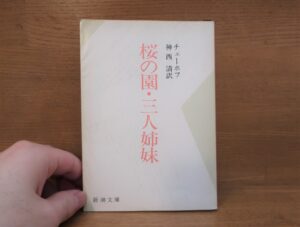

チェーホフの代表作『かもめ』あらすじ解説―チェーホフ劇の真骨頂
Amazon商品ページはこちら↓
番外編 おすすめ参考書 佐藤清郎『わが心のチェーホフ』
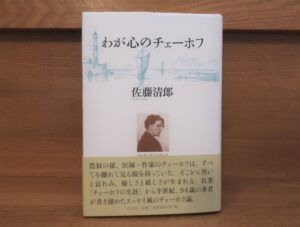
この本は50年以上もチェーホフ研究に携わり続けたロシア文学者の最晩年のチェーホフ論となっています。
私のブログでもこれまでずっとお世話になっております佐藤清郎氏でありますが、この本もまた素晴らしいです。
以前当ブログの「帝政ロシア末期を代表する作家チェーホフ―ドストエフスキー亡き後のロシアを知るために」という記事でもお話ししましたが、佐藤清郎氏は私がチェーホフを読むきっかけをくれた学者さんでした。
チェーホフを読むことでドストエフスキーやトルストイから一歩距離を置いた視点を知ることができました。ドストエフスキーやトルストイは良くも悪くも狂気の作家です。圧倒的な力で二人は自らの思想に突き進みます。
それに対してチェーホフは醒めた視点でまるで空高くから地上を見下ろすかのように一歩引いて人間を見ていきます。極端に走らず、人間の世界を現実的に見ていくまなざしがそこにあります。
とは言ってもチェーホフは冷たいというわけではありません。そこに温かくて優しいまなざしがたしかにあります。この優しさがあるからこそ、チェーホフの醒めた視点が生きてくるのです。
この本ではチェーホフがいかに優れた作家か、そしてその特徴がどこにあるのかということがこの上なくわかりやすく書かれています。
そしてチェーホフだけではなく、ドストエフスキーとの対比も書かれているので、チェーホフを知りたい方だけではなく、ロシア文学や演劇を知りたい方にとっても非常に面白い知見がたくさん説かれています。
この本を読めばチェーホフだけでなくロシア文学の特徴、そしてそれらが現代日本を生きる私たちにどのような意味があるのか、どのような問いかけをしているかまで学ぶことができます。
この本はとにかくおすすめです。チェーホフ関連の本で何を読もうか迷っている方がいればまずこの本をお薦めしたいです。
佐藤清郎『わが心のチェーホフ』―チェーホフ本で最もおすすめの一冊!
Amazon商品ページはこちら↓
おわりに
チェーホフが活躍した時代はロシア帝政末期という、秘密警察が跋扈する不穏で閉鎖的な時代でした。そこでは人生を問う文学は下火になり、人々は憂さを晴らすために娯楽を追い求める風潮が進んで行きました。
佐藤清郎氏によれば、現代日本はまさにチェーホフが生きた時代とそっくりだそうです。
たしかに、まさしく今の日本は経済的にも国際情勢においても危機的な状況です。しかし日々生きることでやっとの私たちは今さら生きるとは何かと問うたりする余裕すら失ってしまったのではないでしょうか。
その疲労とストレスを癒すために娯楽を求めることしかもはや私たちにはできないのではないか。
実際にメディアに流れるのはグルメや温泉、旅、お笑い、スポーツ、お洒落なものなどなど、そうしたもので溢れています。娯楽そのものを否定しているわけではありません。私もそれらが無ければ辛いです。人生の楽しみでもあります。ですが何事もバランスです。どちらか一方に傾きすぎるとそこに問題が起こります。佐藤氏が上で紹介した本においてチェーホフを通して警告しているのはまさにその通りだなと思います。今の時代はチェーホフが生きた時代と似ているのです。これは重要な問題提起だと思います。
歴史は形を変えて繰り返します。
帝政末期のロシアのこうした状況は、結局その後ロシア革命につながり、レーニン・スターリン政権が樹立されることになりました。その結果ロシア帝政どころではない大量粛清や思想弾圧が行われ、自由が失われることになりました。
日本も他人事ではありません。歴史は形を変えて繰り返します。私たちが生きる世界が急に失われてしまうこともありうるのです。
チェーホフはそれを私たちに警告してくれているのです。
チェーホフはそうした陰惨な時代の中でも「人間の幸せとは何か」、「日々背負わなければならない苦悩に何の意味があるのか」ということを探究します。それが端的にあらわされているのが、『ともしび』や『退屈な話』、『六号病棟』、『すぐり』といった作品です。『かもめ』などの四大劇も家庭におけるすれ違いを通して生きる意味を模索した作品です。
チェーホフは私たちの「当たり前の価値観」を見直させます。私たちがごく当たり前のように「幸せ」と思っていることに対して「それは本当に幸せなことなのですか」と疑問を突き付けます。
チェーホフを読んでいるとどきっとさせられることが多々あります。苦しい時代を確かな眼で生き抜いた彼の鋭い指摘は現代を生きる私たちにも必ず心に刺さるものがあると思います。
チェーホフの作品と出会うことができて本当によかったなと思います。ドストエフスキーやトルストイと比べて知名度や読まれる機会が少ないかもしれませんが、チェーホフの実力は圧倒的です。チェーホフがもっと世に広まってくれたらなと心から思います。それほどすごい作品ばかりです。ぜひおすすめしたいです。
以上、「チェーホフおすすめ作品10選~チェーホフは小説も面白い!戯曲だけにとどまらない魅力をご紹介!」でした。
関連記事
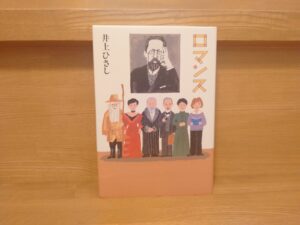
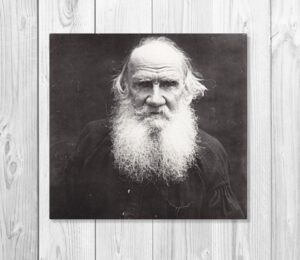
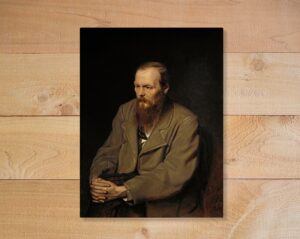
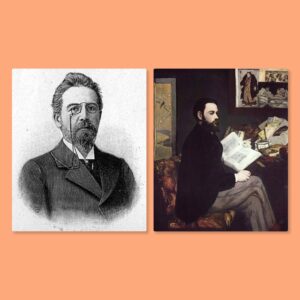
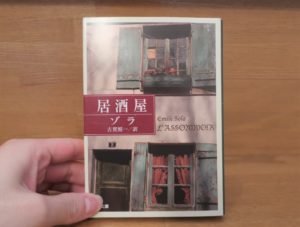
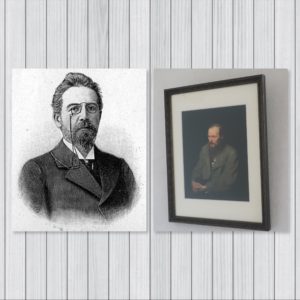
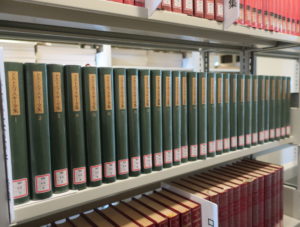

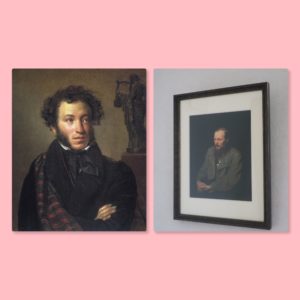
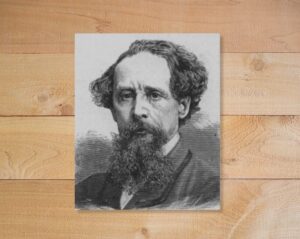






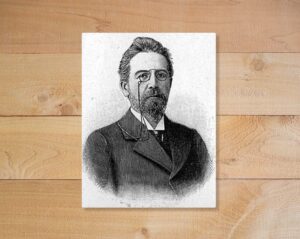
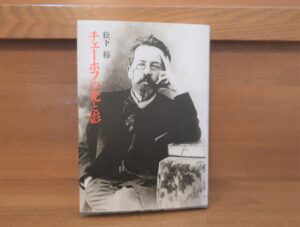

コメント